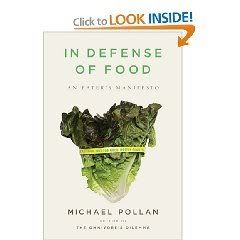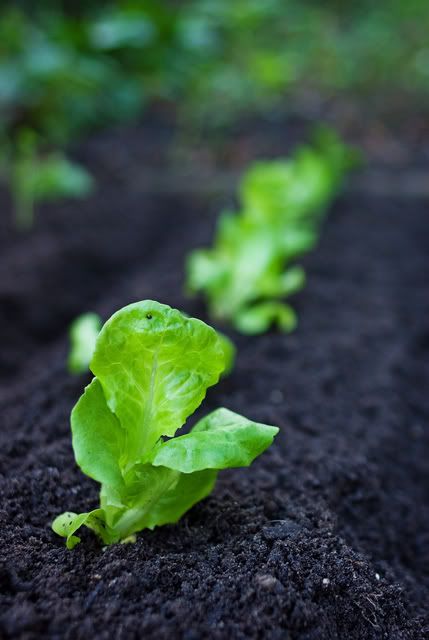
Today's specific inspiration came yesterday actually, when I was writing about starting my garden for this year and reminiscing about my satisfaction with last year's tomato harvest.
Pollan in his inspirational and practical last chapter quotes Wendell Berry, who in "The Pleasures of Eating" wrote:
"Eating with the fullest pleasure — pleasure, that is, that does not depend on ignorance — is perhaps the profoundest enactment of our connection with the world. In this pleasure we
 experience and celebrate our dependence and our gratitude, for we are living from mystery, from creatures we did not make and powers we cannot comprehend."
experience and celebrate our dependence and our gratitude, for we are living from mystery, from creatures we did not make and powers we cannot comprehend."Pollan talks about the counter-cultural and cost-saving benefits in providing one's own food:
"To take part in the intricate and endlessly interesting processes of providing for our sustenance is the surest way to escape the culture of fast food and the values implicit in it: that food should be fast, cheap, and easy; that food is a product of industry, not nature; that food is fuel, and not a form of communion, with other people as well as with other species — with nature.
"... To the problem of being able to afford high-quality organic produce the garden offers the most straightforward solution: The food you grow yourself is fresher than any you can buy, and it costs nothing but an hour or two of work each week plus the price of a few packets of seed." (p. 197-198 in my rechecked-out library copy)
Gardening requires honest work, and quite a bit of it, but the reward is truly appreciating the food that sustains you.
I wrote before that Pollan's book combats the cult of nutritionism, the reducing of food to its constituent scientific parts (or, at least, the ones we know about). Food in the nutritionist view is only a collection of various fats, carbs, and vitamins, and if we don't know what makes it good, then we can't appreciate it. As I've been planning my veggie patch, I've been struck by how the seed packets tout the vitamins inherent in kale and broccoli — as if anyone would doubt that such leafy greens are good to eat! As if that's how I'd choose what to grow — oh, this one's high in vitamin C but not A, never mind — over such niceties as what kind of food we like to eat, or what I think will work well in our garden patch. But we've come to a point in American food consumption where we trust our experts over our own common sense and cultural traditions. Growing your own (vitamin-rich, who knew!) vegetables is an exercise in getting back to what we instinctively know is good for us.
In that vein, Pollan goes on to wax poetic about the garden's bounty (and, hearing his description of his Californian fruit trees, I confess to being a little jealous that I live farther north!):
"When the basket of produce lands on the kitchen counter, when we start in on the cleaning and cutting and chopping, we're thinking about a dozen different things — what to make, how to make it — but nutrition, or even health, is probably not high on the list. Look at this food. There are no ingredients labels, no health claims, nothing to read except maybe a recipe. It's hard when contemplating such produce to think in terms of nutrients or chemical compounds; no, this is food, so fresh it's still alive, communicating with us by scent and color and taste. ... The cook does not need to know, as the scientists have recently informed us, that cooking the tomatoes with olive oil makes the lycopene in them more available to our bodies. No, the cook already knew that olive oil with tomatoes is a really good idea.
"As cook in your kitchen you enjoy an omniscience about your food that no amount of supermarket study or label reading could hope to match. Having retaken control of the meal from the food scientists and processors, you know exactly what is and is not in it ... To reclaim this much control over one's food, to take it back from industry and science, is no small thing; indeed, in our time cooking from scratch and growing any of your own food qualify as subversive acts." (p. 199-200)
"Subversive acts." That's the kind of thing I can get behind. Vive la kitchen-garden revolution!
Photo of baby lettuce plants courtesy of Craig Jewell on stock.xchng









 I'm Lauren Wayne, writer and natural parent. I embrace attached parenting with an emphasis toward green living.
I'm Lauren Wayne, writer and natural parent. I embrace attached parenting with an emphasis toward green living. 


0 comments:
Post a Comment